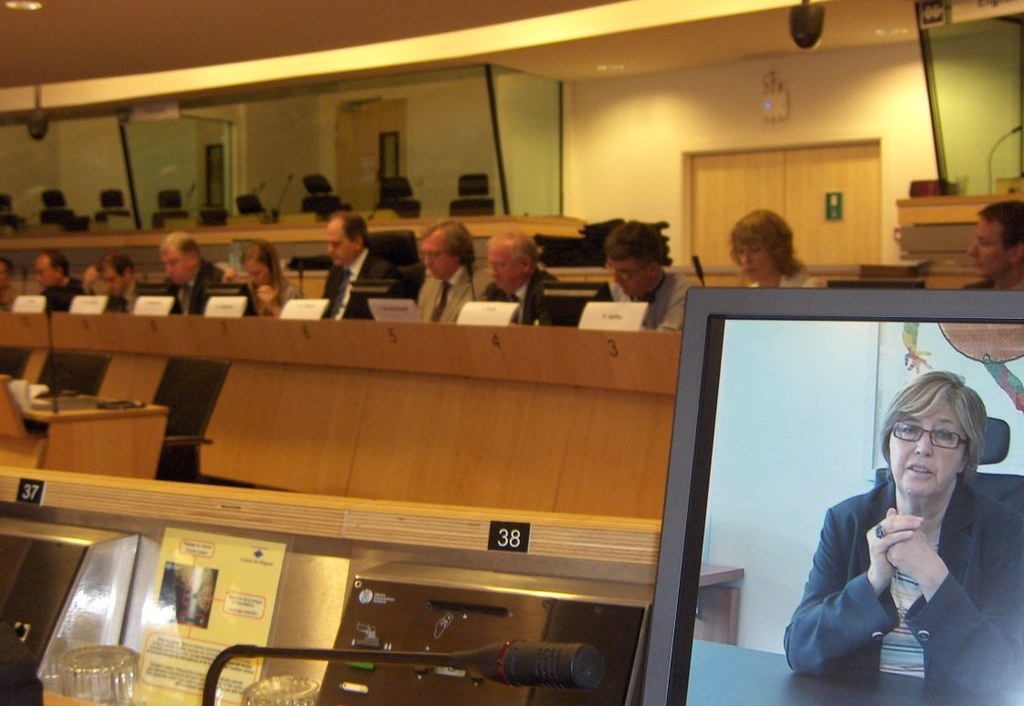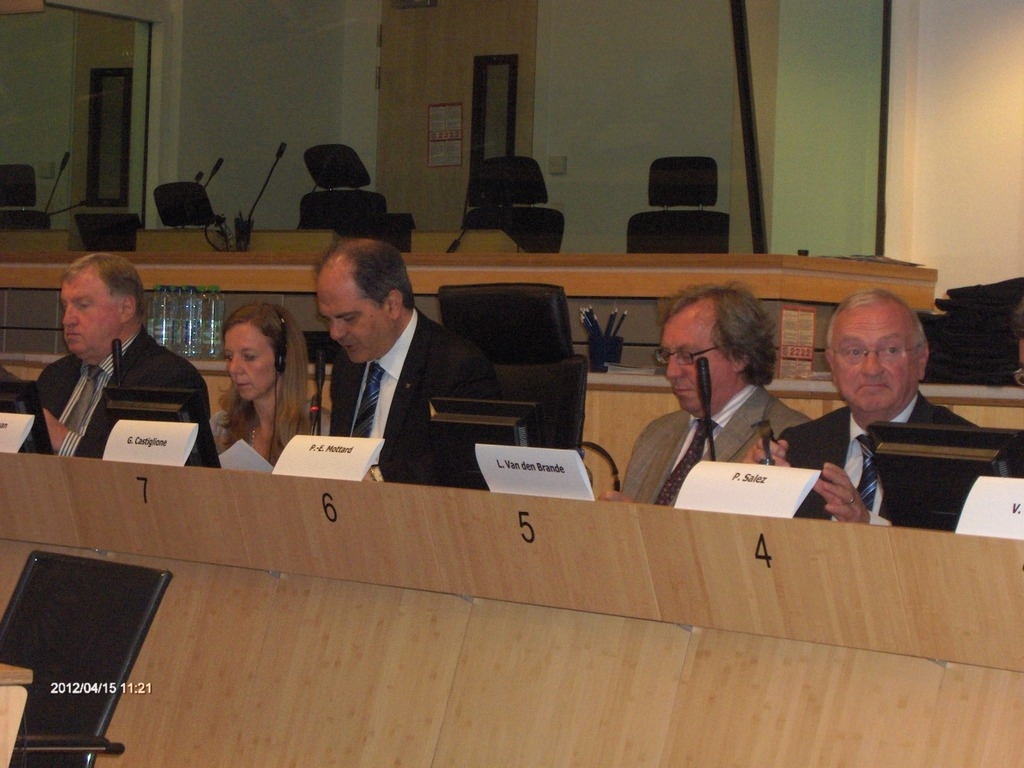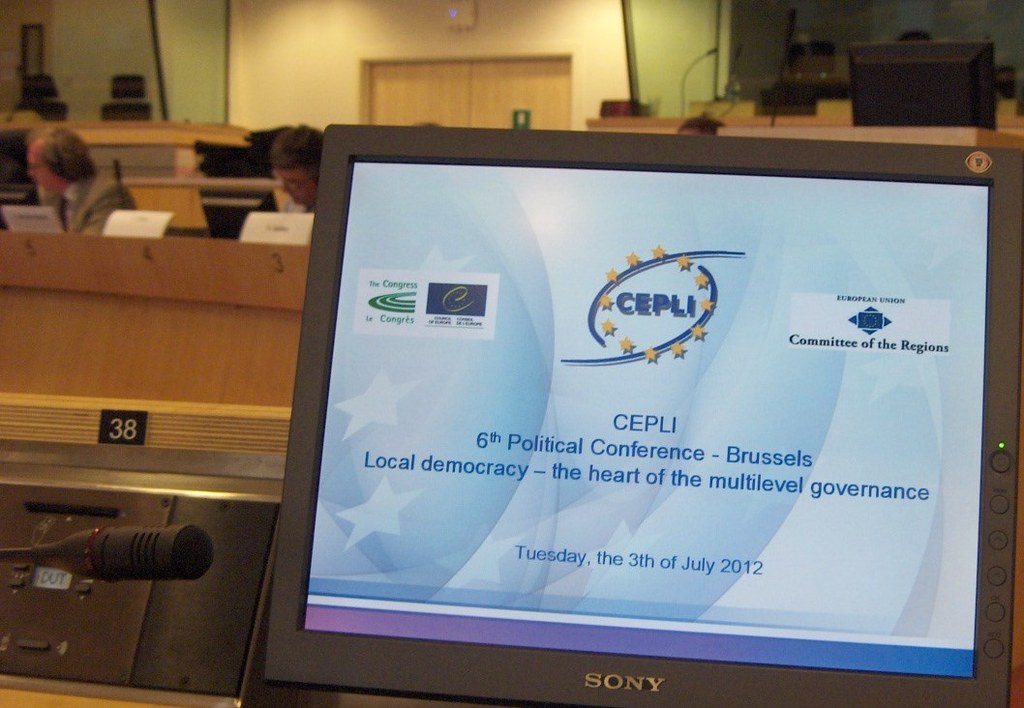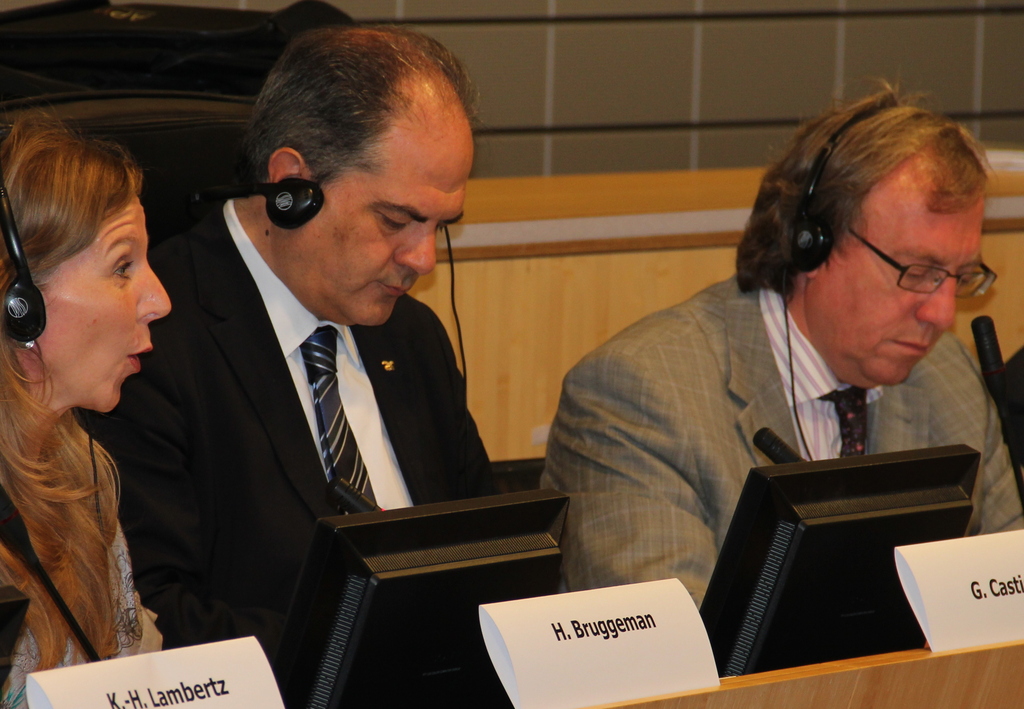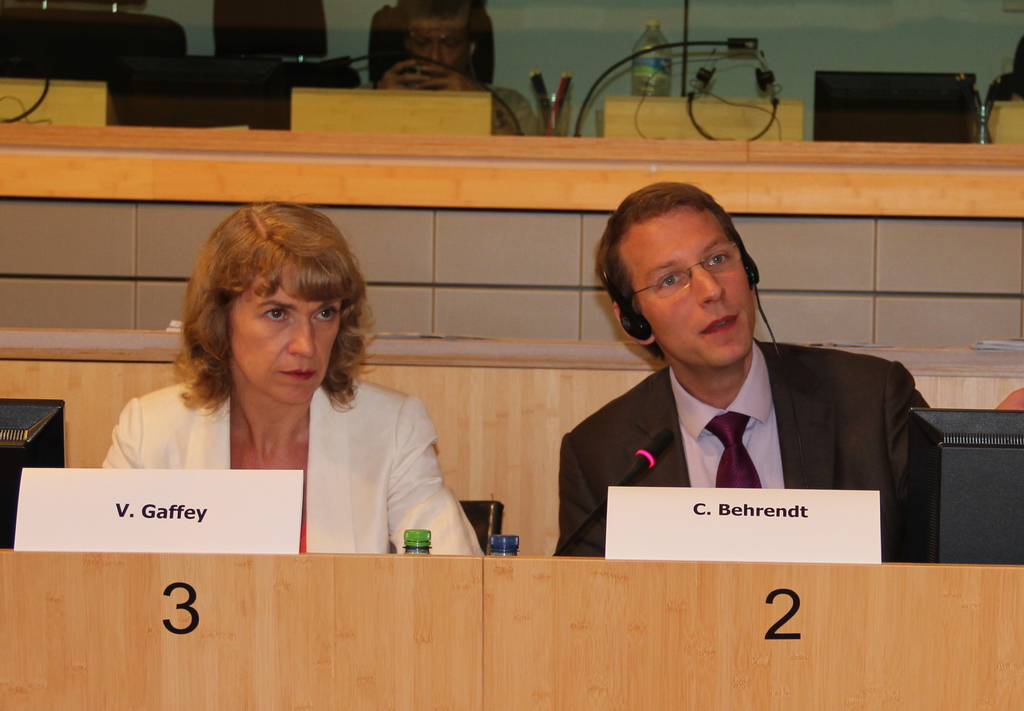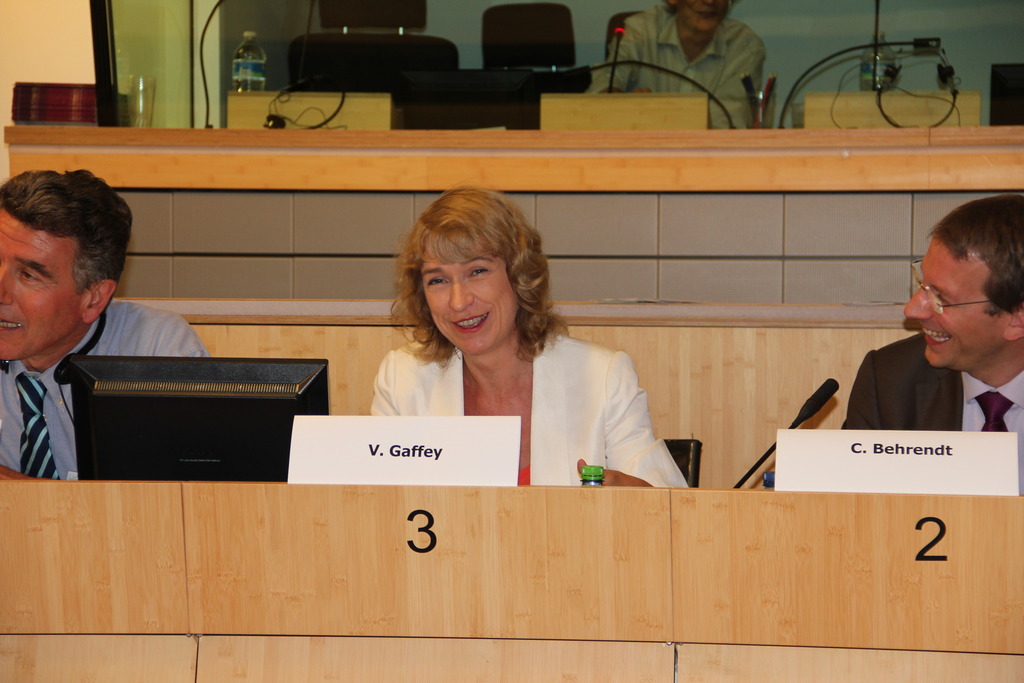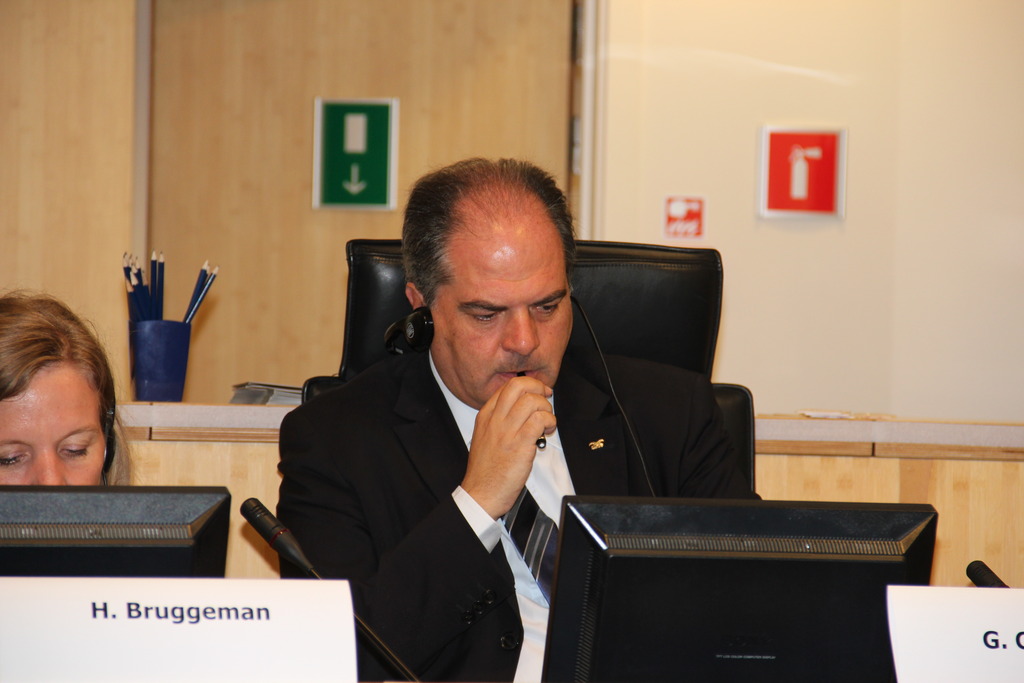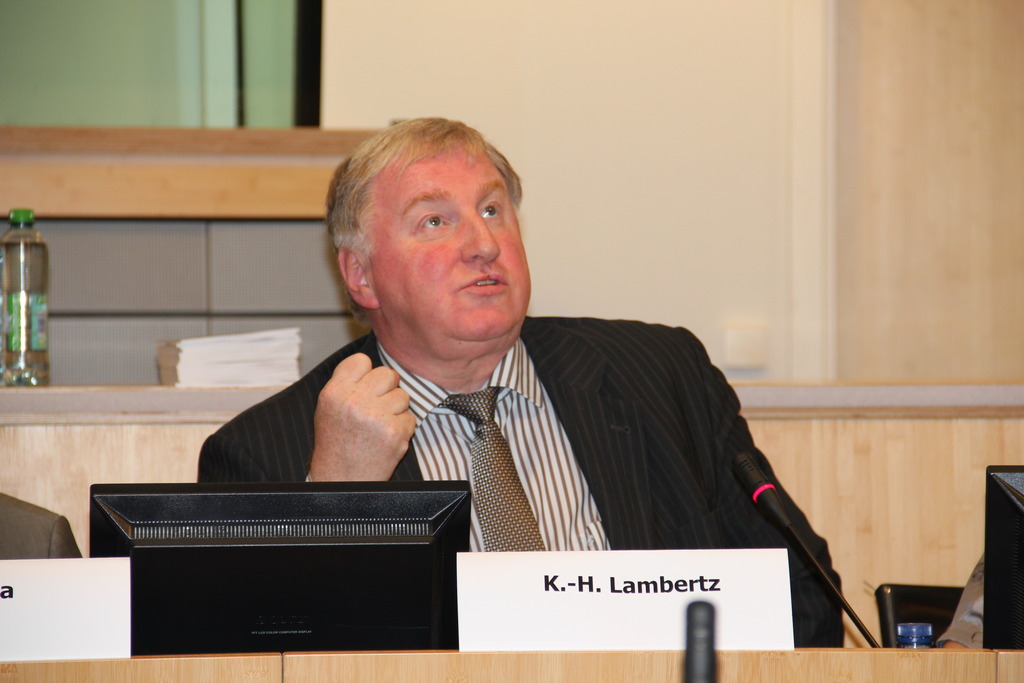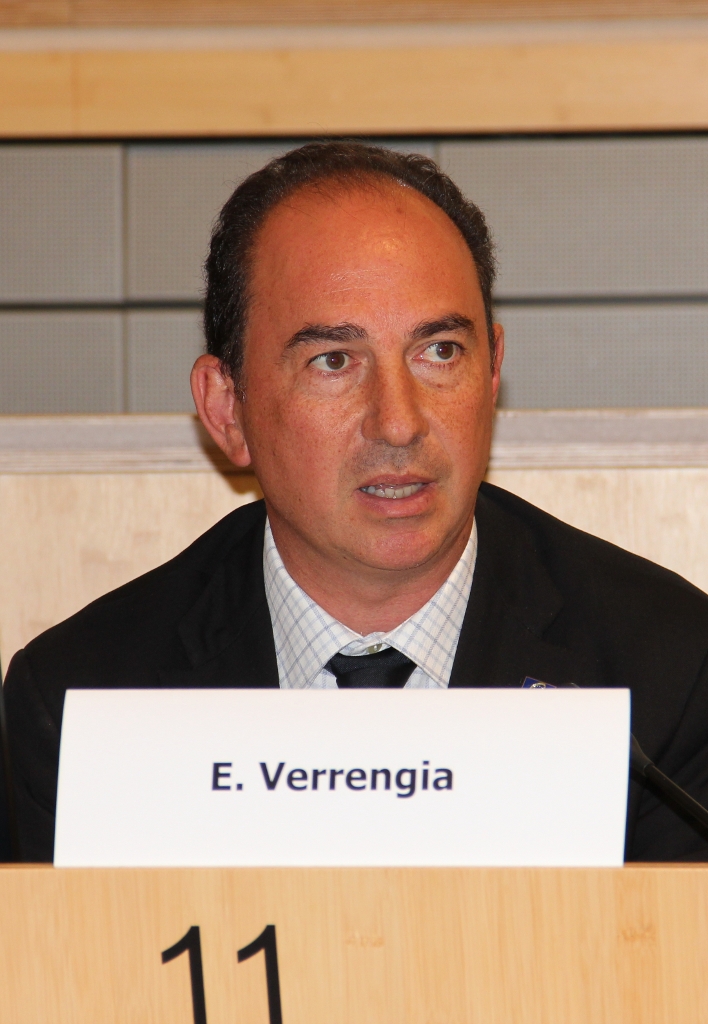Fifth Political Conference of CEPLI "Local democracy - the heart of multilevel governance"
Publish date: Thursday, 26 July 2012
On 3rd of July 2012 the APW (Association of Walloon Provinces) and the VVP (Association of Flemish Provinces) welcomed the 5th Political Conference of the European Confederation of Local Intermediate Authorities (CEPLI).
The event was organized in partnership with the Committee of the Regions and the Congress of Local and Regional Authorities of Europe (CLRAE), on the occasion of a Conference organized at the Committee of Regions on the theme of local democracy and multilevel governance.
The conference began with the presentation of a video message from Ms. Mercedes Bresso, President of the Committee of Regions, who welcomed the participants to the conference. She recalled that each government has its place in the Committee and expressed the wish that Local Intermediate Authorities will fully contribute to the definition of partnerships to be settled within the framework of the Cohesion Policy of the Union.
In his introductory remarks, the President of the CEPLI, Mr. Giuseppe Castiglione, stressed the importance of the debate on the future of local democracy. He noted that the economic crisis has an important impact on local authorities, being targeted by national governments wishing to rationalize public expenditures. If these reforms prove to be necessary, they must be made in a thoughtful way and by respecting the local democracy. The President of the CEPLI reiterated the need to comply with the provisions of the European Charter of Local Self Government of the Council of Europe, namely in terms of respecting the results of direct election of local communities’ representatives.
Ms. Hilde Bruggeman, the President of the VVP, has stressed that the CEPLI Conference is opened for the very first time to such a wide audience and welcomed it. She recalled that Local Intermediate Authorities (LIAs) are being challenged in several Member States of the European Union and expressed her hope that this level of local community will be more involved, in the future, in the definition and implementation of European Policies. She regretted that LIAs were not involved in the debate on the White Paper on Multilevel Governance, especially as the Belgian provinces are not represented in the Committee of Regions.
The moderator of the conference, Mr. Patrick Salez, European territorial policy expert, introduced the debate by stating two important challenges of governance: improving the efficiency and quality of public action on the one hand, and strengthening the participation of citizens and stakeholders of territorial development in its implementation, on the other.
GUARANTEEING LOCAL DEMOCRACY IN EUROPE WITH LOCAL AUTHORITIES’ SUPPORT
The first part of the debate of the day was devoted to the intervention of two university professors. Professor Annick Magnier (Florence University) presented the study she conducted on the role of provinces in the Italian institutional framework. This study shows the great commitment of citizens and local communities to the provincial institution, meeting, in this way, the need to offer proximity answers able to provide high quality public services.
For his part, Professor Christian Behrendt (University of Liège) commented on the provisions of the European Charter of Local Self-Government, emphasizing the links that must be maintained between local autonomy and a clean fiscal power. The two go hand in hand. The fiscal power is the undeniable proof that local authorities can exercise their competences with a certain degree of autonomy. He also recalled that the corollary of this autonomy is the direct election of local representatives, who are accountable to their electorate and their elected assembly for the proper use of public funds.
WHAT KIND OF MULTILEVEL GOVERNANCE FOR A GOOD SOCIAL, ECONOMIC AND TERRITORIAL COHESION?
Ms. Veronica Gaffey, from DG Regio, European Commission, stressed the need to include the European construction in a context of multilevel governance. She acknowledged that one of the major weaknesses of the Lisbon Treaty was the insufficient involvement of Local Authorities. The willingness of the European Commission is to organize partnerships with all levels of local authorities in order to involve institutional and civil society which can bring added value to the implementation of European Policies, and that from the next programming period of EU funds 2014 - 2020. The Commission is of the view that there is no single governance model and the specificities of each territory should be taken into account.
The President of the Commission for Citizenship, Governance, Institutional and External Affairs (CIVEX) of the Committee of the Regions, Mr. Luc Van den Brande stressed that the failure of the implementation of the objectives of the Lisbon Treaty is particularly due to lack of involvement of local and regional authorities. He also stated that in a context of economic, financial and identity crisis as Europe meets now, it is necessary to develop creative models of governance going beyond the administrative boundaries of States. For him, multilevel governance should allow the involvement of all actors who can bring added value to the debate but ensuring that institutional actors have a meaningful say.
In conclusion of this debate, Mr. André Viola, President of Arco Latino, presented the "Manifesto of Salerno”. The document was adopted by the members of this network at their last General Assembly devoted to the role of Local Intermediate Authorities in Europe. He emphasized the role of CEPLI to bring the voice of intermediate territorial communities at European level. The Provinces are privileged partners of the Regions and States because of their proximity links with local communities and their capacity for action. They had a key role in planning and coordination of the development actors in the local economy.
THE LOCAL INTERMEDIATE AUTHORITIES IN EUROPE - DRAFT RESOLUTION OF THE CONGRESS OF LOCAL AND REGIONAL AUTHORITIES OF EUROPE (CLRAE)
In his speech, Mr. Karl-Heinz Lambertz, President of the Governance Committee of the Congress of Local and Regional Authorities of Europe, presented what must be the only criterion that should guide reforms: the effectiveness of public action. He supports a pragmatic approach seeking to ensure that any changes will bring more efficiency, citizens’ involvement and will contribute to take Europe out of the crisis.
Mr. Emilio Verrengia, CLRAE Rapporteur for the debate on intermediate local level, presented the stages and the essential elements of his report. He stressed that the reforms envisaged in Europe concerning the local intermediate level respond mainly to economic concerns and stand as an excuse to re-centralize certain powers. The approach must be totally different if we take into account the principles of subsidiarity and multilevel governance.
On behalf of the President of the Assembly of Departments of France, Mr. Claudy Lebreton, Mr. André Viola presented the main points of the Final Declaration of the Brussels Conference of CEPLI, which emphasizes the importance of the principles of the European Charter of Local Self-Government and the need to valorize the involvement of local actors in multilevel governance.
Mr. Paul-Emile Mottard, Vice-President of the CEPLI and president of APW, addressed the concluding remarks of the conference by highlighting the quality of debate, the great diversity of the competences performed by LIAs, which respond to the concerns about local anchoring and proximity to the areas they serve. This diversity does not allow foreseeing a single model of governance. He stressed the need for consultation between the States and Local Intermediate Authorities but also between the territories and Europe, in order to ensure the implementation of European Policies.
Download: Fifth Political Conference of CEPLI - 3rd of July 2012 - EN (.pdf file - 66.28 KB)Download: Final Policy Statement - CEPLI - 3rd of July 2012 (.pdf file - 64.49 KB)Download: Conférence politique CEPLI - 3 juillet 2012 - FR (.pdf file - 53.19 KB)Download: Résolution finale CEPLI - 3 juillet 2012 - FR (.pdf file - 45.75 KB)


